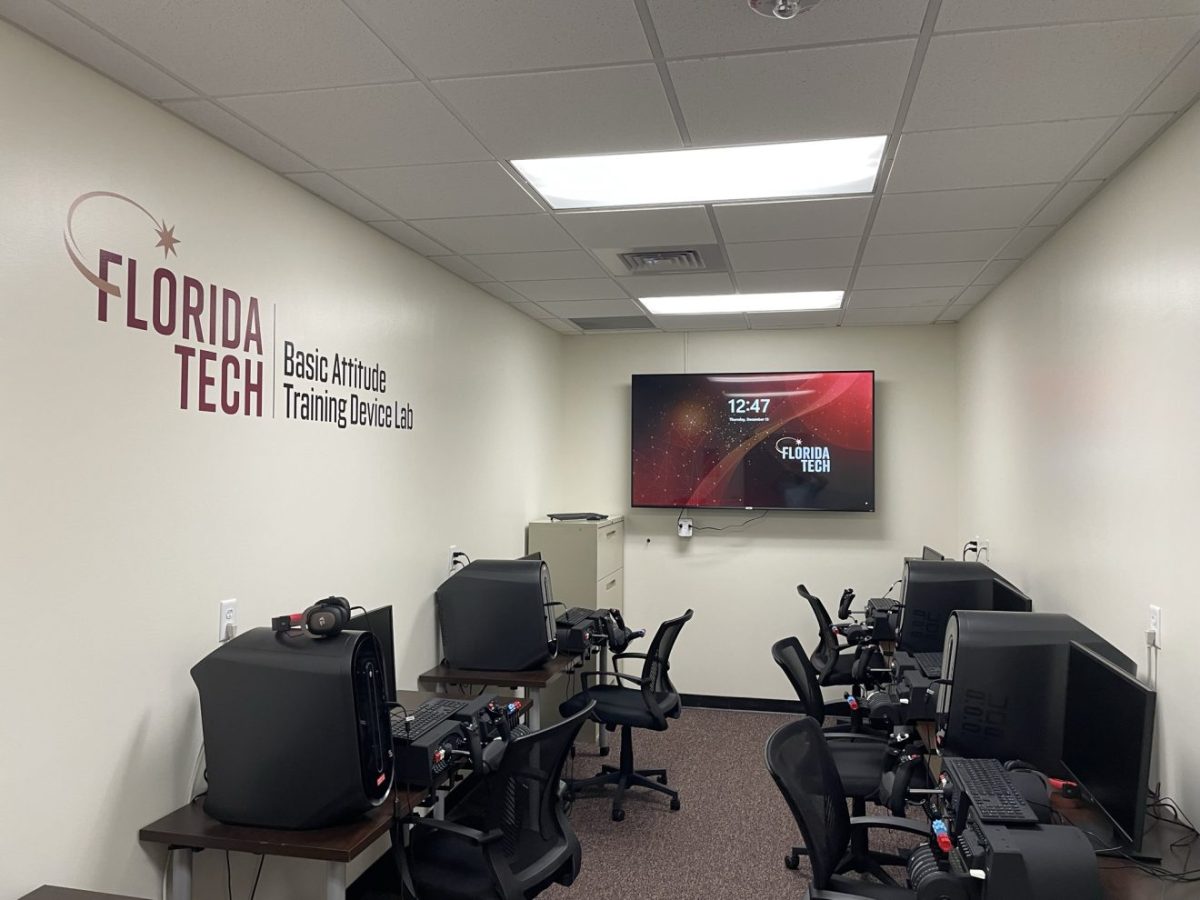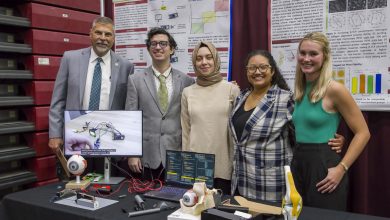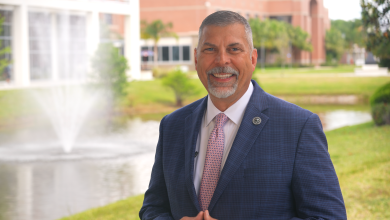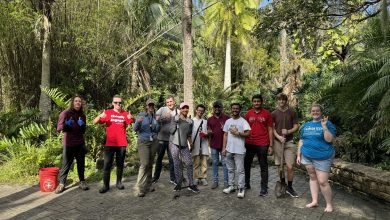Revamped Flight Training Lab Looks to Boost Aviation Experience
Throughout Florida Tech’s College of Aeronautics are multidisciplinary programs that allow students to gain hands-on experience in their field. The newly upgraded Basic Attitude Training Device (BATD) Lab looks to carry that focus forward.
Led by Rian Mehta, Ph.D., assistant dean of the College of Aeronautics, the lab, located in room 105 of Skurla Hall, contains six high-performance systems equipped with Prepar3D, an open visual simulation platform that allows users to create aviation training scenarios. Students have the opportunity to practice basic flying and non-flight students can put what they’re learning in the classroom into (virtual) practice via these desktop simulators.
“It’s designed to be a training and research lab,” Mehta said. “Students use a very advanced piece of software known as Prepar3D, which is Lockheed Martin’s software. It’s like a flight simulator, Microsoft Flight SIM software, but it’s very meticulously focused on pure training rather than feeling like a video game. It’s a little bit more focused on mimicking the real world. It can pull a lot of data, which can help graduate students do a lot of research.”
The lab hours will vary from semester to semester but it is generally open from 9 a.m. to 5 p.m. Monday-Friday. All Florida Tech students are free to use the lab.
The lab has been around for 15 years, but with the social distancing measures enacted during the pandemic, it was closed. Mehta and others involved with the lab used the downtime to look at ways to provide a better student experience, ultimately opting to tap into the donor-funded General Dean’s Fund to fully revamp the BATD Lab.
The lab, which can accommodate six students at once, was reimagined with new, high-performance computers and new control units and software, such as the Redbird TD flight simulator complete with a G1000 panel that simulates the controls pilots see in an airplane. With the simulators, furniture, computers and large screen TV, Mehta said costs have approached $20,000.
As a researcher, Mehta loves that the BATD Lab has software that graduate students can use in collecting data that will allow for more hands-on, practical dissertations. And he is excited by how non-flight students can benefit.
“Most of us that grew up wanting to be pilots grew up playing a flight simulator and that’s where our love for aviation kind of started,” Mehta said. “That could be true for a 19-year-old in engineering who’s not really sure, flies the simulator and then their whole life could change. So that’s what I would want to make sure that students know is that it’s open to everyone.”
Mehta hopes that through feedback from students who utilize the lab, he and others can learn what to add and what will be helpful for students. Already, the college is planning to introduce virtual reality headsets this spring, allowing for a more immersive cockpit experience.





